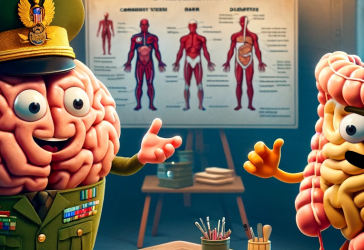Understanding Anxiety: What It Is and How It Affects Us
What is Anxiety?
Understanding Anxiety can be challenging. Anxiety is a term often used by clients who struggle to define it clearly. In its simplest form, anxiety is the worry about something that hasn’t happened yet. Next time you feel anxious, take a moment to check in with yourself and identify where your worry is focused. More often than not, you’ll find that your anxiety centres around a future event that has yet to occur, such as an upcoming wedding, a work night out, or financial concerns at the end of the month.
Why Does the Future Perpetuate Anxiety?
Understanding why the future perpetuates anxiety is relatively straightforward and can be illustrated with an example.
Case Study: John’s Story:
John is a 19-year-old who has been in five relationships over the past three years, all ending with his girlfriends leaving him. Recently, John met a new girl, Joanne, and he feels a strong connection with her. Despite enjoying Joanne’s company, John constantly worries that she will leave him, even though there is no evidence to support this fear. As a result, this constant worry about the future disrupts his peace of mind.
The Real Threat vs. Perceived Threat:
John’s anxiety is not based on a real threat, as Joanne loves him and wants to be with him. However, John’s thoughts lead him to predict and imagine scenarios where Joanne leaves, causing him significant distress. Consequently, this anxiety-driven behaviour can make him appear needy to others. If John could let go of his future-oriented fears, he would enjoy his relationship more and reduce his anxiety.
Early Childhood and Anxiety:
John’s relationship issues likely stem from childhood experiences related to abandonment, trust, and isolation. Therefore, these issues would benefit from therapeutic attention. By increasing his self-awareness, engaging with his thoughts, and focusing on the present evidence in his relationship with Joanne, John could alleviate much of his anxiety.
The Role of Memory in Anxiety:
Anxiety is often a result of our mind’s ability to remember, recall, and reapply past experiences. Our brains store memorable data from previous relationships to predict future outcomes. This mechanism, which once helped our ancestors survive, now contributes to anxiety in modern life.
Example: Caveman Dave:
Consider Dave the caveman, who encounters a soft-haired creature one morning. Initially, Dave is captivated by its beauty, but as he approaches, the creature attacks. Surviving the ordeal, Dave’s body records the event and will flood his thoughts with images of danger next time he encounters a similar creature. Therefore, this anxiety serves as a protective response to avoid future threats.
Applying Past Experiences to Present Situations:
John’s anxiety stems from applying past relationship experiences to his current situation. Consequently, his constant state of fear about losing Joanne leads to behaviours that could jeopardise his relationship. Thus, therapy can help John reassess the data stored from past relationships, allowing him to relax and enjoy the present rather than worrying about the future.
How CBT Can Help with Anxiety:
Cognitive Behavioural Therapy (CBT) is a highly effective approach for managing anxiety. It helps individuals identify and challenge negative thought patterns and behaviours that contribute to their anxiety. By replacing these with more realistic and positive thoughts, CBT reduces anxiety symptoms and promotes healthier coping mechanisms. Additionally, CBT equips individuals with practical tools and strategies to manage anxiety in their daily lives, leading to long-term improvements in mental well-being.
Conclusion:
In conclusion, anxiety is a natural response to future uncertainties, rooted in past experiences. By understanding its origins and learning to focus on the present, individuals like John can reduce their anxiety and improve their quality of life. Therapy plays a crucial role in this process, guiding individuals to re-evaluate past experiences and develop healthier thought patterns.
For more information visit Empathy Rooms today






